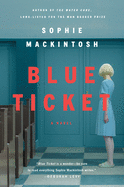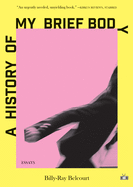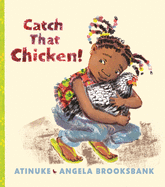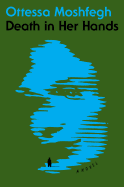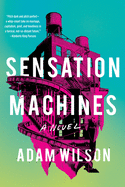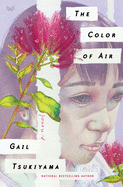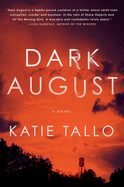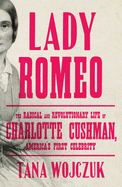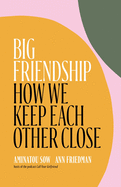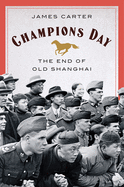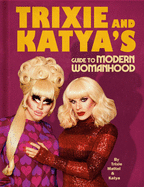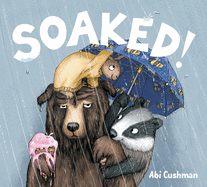Tuesday, July 14, 2020
As the United States faces its worst economic crisis since the Great Depression, most Americans are more focused on the household budget than on macroeconomic issues. These two small books are packed with insight that will help anyone navigate the choppy financial waters we're likely to face for some time.
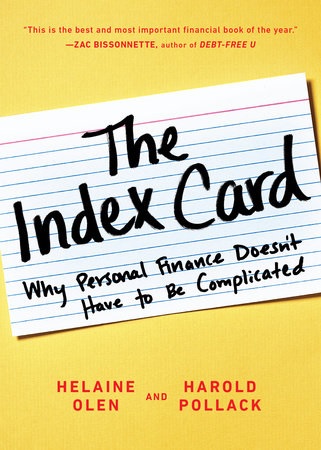 In The Index Card: Why Personal Finance Doesn't Have to Be Complicated (Portfolio/Penguin $14), personal finance journalist Helaine Olen and University of Chicago professor Harold Pollack set out to quiet the "cacophony put out by the financial services industry" by reducing that din of financial advice to 10 rules written on an index card. Whether it's "Strive to Save 10 to 20 Percent of Your Income" or "Never Invest in Individual Stocks," their guidance is simple, useful and timeless.
In The Index Card: Why Personal Finance Doesn't Have to Be Complicated (Portfolio/Penguin $14), personal finance journalist Helaine Olen and University of Chicago professor Harold Pollack set out to quiet the "cacophony put out by the financial services industry" by reducing that din of financial advice to 10 rules written on an index card. Whether it's "Strive to Save 10 to 20 Percent of Your Income" or "Never Invest in Individual Stocks," their guidance is simple, useful and timeless.
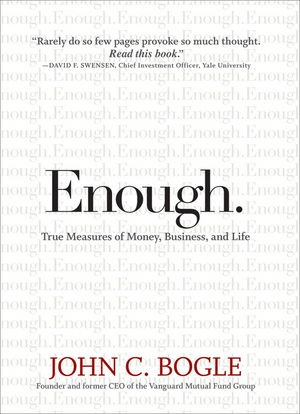 The late John C. Bogle, founder of the Vanguard Mutual Fund Group, is best known for introducing one of investing's revolutionary innovations--the low-cost index fund. But as successful as he was in building a mammoth financial services firm, Bogle was always a man driven more by principle than by the goal of piling up wealth. Taking its title from a conversation between the writers Kurt Vonnegut and Joseph Heller, Enough: True Measures of Money, Business, and Life (Wiley, $14.95) is an eloquent statement of his values. In succinct form, he explains the importance of low-cost investing and how that fueled his passionate advocacy on behalf of individual investors. His discussion of the theory behind index investing is a helpful starting point for those who want to know more about its benefits.
The late John C. Bogle, founder of the Vanguard Mutual Fund Group, is best known for introducing one of investing's revolutionary innovations--the low-cost index fund. But as successful as he was in building a mammoth financial services firm, Bogle was always a man driven more by principle than by the goal of piling up wealth. Taking its title from a conversation between the writers Kurt Vonnegut and Joseph Heller, Enough: True Measures of Money, Business, and Life (Wiley, $14.95) is an eloquent statement of his values. In succinct form, he explains the importance of low-cost investing and how that fueled his passionate advocacy on behalf of individual investors. His discussion of the theory behind index investing is a helpful starting point for those who want to know more about its benefits.
Neither of these books will necessarily set you on the road to a great fortune, but if you're interested in building a sound foundation for your financial house it will be hard to find two titles superior to these. --Harvey Freedenberg, freelance reviewer
Blue Ticket
by Sophie Mackintosh
In a toxic society that dictates which women are allowed to raise children, one woman defiantly risks everything to become a mother in Sophie Mackintosh's brilliant and heartbreaking sophomore novel Blue Ticket.
There are two types of women: those with white tickets raise families, and those with blue tickets do not. Deemed unsuitable for motherhood, Calla, with a blue ticket, is encouraged to indulge in sexual promiscuity. But after a lifetime of being told she is flawed--"there was lack in my brain, my body, my soul"--the pull of motherhood becomes unbearable, and Calla becomes pregnant illegally, forcing her on the run. As a fugitive she is confronted not only with her own convoluted emotions, but also with the poisonous contradictions of a misogynistic society that simultaneously tells her to exploit herself and calls her a slut for doing so. "Motherhood was the last perversion.... It was the only one closed off to me." Calla leaves behind the known world for the dangers beyond, determined to protect her unborn child any way she can.
Blue Ticket is raw and painfully candid about the biology and emotions surrounding pregnancy and the often toxic modern perceptions about women, sexuality and motherhood. Mackintosh (The Water Cure) depicts Calla's psychological struggle to reconcile her supposed "badness" with a longing for a baby that "every cell in [her] body" tells her is right with an abrupt intimacy that is both beautiful and painful to witness. Blue Ticket is an eye-opening and powerful allegory of feminist choice and what it means to be a mother, a modern classic in the making. --Jennifer Oleinik, freelance writer and editor
Discover: In this potent novel, a woman sacrifices everything to have a baby illegally in a misogynistic dystopian society that has taken away the choice to become a mother.
Death in Her Hands
by Ottessa Moshfegh
Acclaimed author Ottessa Moshfegh creates protagonists that are not simply unlikable and unreliable, they are severely frustrating. Death in Her Hands uses this same basic formula, but innovates in its capacity to baffle, appall and, yet, utterly magnetize readers.
Vesta Gul, a 72-year-old widow, appears to be a "little old lady, according to most people." After her husband, Walter, a German university professor, dies of cancer, Vesta sells their home and moves to the town of Levant, a backwater seemingly occupied only by obese residents who all appear to be a decade older than they are. Vesta discovers a note while walking with her dog Charlie through the birch woods that surround her cabin: "Her name was Magda. Nobody will ever know who killed her. It wasn't me. Here is her dead body."
The note becomes the catalyst for Vesta's retreat into the dark, strange territory of her own mind, where she is determined to solve this "mystery" using only her imagination. Her ever-increasing mania is the chaotic force that animates the novel. The obsession becomes all-consuming, dragging readers helplessly along as Vesta invests trivial details with grand meaning and repeatedly comes to the most puzzling conclusions.
As with Moshfegh's other novels (My Year of Rest and Relaxation; Eileen), there is no respite "offstage" to evaluate the protagonist's unreasonable behavior. However, Moshfegh has a talent for extracting comedy out of absurdity, like having her elderly character attempt to solve a mystery by using AskJeeves.com at her local library. Twisted, amusing and transgressive, Death in Her Hands delivers a feminist anti-hero readers won't forget. --Emma Levy, publishing assistant, Shelf Awareness
Discover: Ottessa Moshfegh takes on overtones of a deranged Agatha Christie, as aging anti-hero Vesta Gul tries to solve a murder mystery using her limited faculties.
Sensation Machines
by Adam Wilson
For some readers, Sensation Machines, Adam Wilson's biting comedy of a post-Trump America, might start with two knocks against it. First, it stands in the last-century tradition of sprawling, brawling Great American novels by men that attempt to capture a nation and a moment's essence with lots of chatter about penises. Second: Wilson's vision of America after Trump posits the Occupy movement as the reason protesters have thronged the nation's streets, with Black Lives Matter as just one coalition beneath its umbrella. That means this novel about the near future is a step behind the year of its publication, a danger with fictional riffs on current events. Those riffs, though, are fierce and funny, as Wilson charts the failures, compromises and addictions of a generation of New Yorkers caught up in mass unemployment and the possible rise of an American socialism.
The question of a Universal Basic Income is the novel's heart, as a nominally progressive public relations wizard discovers that her baker husband's investments have failed and that her firm has been hired to whip up a last-minute campaign to convince Americans not to support a UBI bill. Her husband, meanwhile, finds himself facing a resonant choice: spend his night with protesters at a Funeral for Capitalism, or with bankers at a raging Gatsby Party? A murder, next-gen tech, videogame addiction and every kind of illegal drug figure into Wilson's lulu of a plot, but the pleasure here is the sharpness of Wilson's prose, his observant satire and the richly evocative feelings of loss. --Alan Scherstuhl, freelance writer and editor
Discover: This lacerating satire of class and privilege imagines American life after Trump.
The Color of Air
by Gail Tsukiyama
Koji Sanada arrived in Hawai'i in 1895, a 10-year-old eager to leave Japan's traditions. His parents, part of a wave of immigrant workers, expected to work for the Puli sugar plantation for three years. When The Color of Air opens in 1935, Koji, a pillar of the Hilo community, has been with Puli his entire life.
Rich with sensuous detail of island life, this novel by Gail Tsukiyama (The Samurai's Garden; A Hundred Flowers) illuminates Hawai'i's harsh plantation conditions as well as the close-knit village families. Hilo is preparing to welcome Daniel, son of Mariko, the love of Koji's life, returning after a decade in Chicago as a doctor.
A celebration at Nori's Okawa Fish Market, redolent with "heavy sea salt fish pineapple mildew odor," brings the community together, as they watch Mauna Loa, the volcano that's been sending warning tremors for two months. Secrets also simmer. Daniel never knew the truth about his father; he doesn't share why he left Chicago. His high school girlfriend Maile is also back, with no explanation. Everyone lovingly recalls Mariko, whose "ghost voice" chapters provide answers, and Koji knows it's time to face the past.
Shared histories and loyalties bind the people of Hilo, whose faith determines "this was all Pele's doing, yeah" and not geologists', when Mauna Loa's lava spares the town. Koji reflects, "The sugar plantations were what brought them to the islands, but it wasn't what made them stay. It was the community they'd formed in spite of it, growing friendships and families as well as cane." --Cheryl McKeon, bookseller, Market Block Books, Troy, N.Y.
Discover: In this sumptuous novel, a Depression-era sugar plantation community faces a threatening volcano in the lush seaside town of Hilo, Hawai'i.
Mystery & Thriller
Dark August
by Katie Tallo
A young woman leaves her abusive relationship and life of petty crime to deal with an inherited estate and personal demons in the haunting mystery thriller Dark August.
Augusta "Gus" Monet was eight years old when her police officer mother was killed and Gus's grandmother sent Gus to a year-round boarding school. After graduation, knowing home wasn't really home, she chooses homelessness on the streets of Toronto, where she hooks up with a petty criminal named Lars.
Then she gets a phone call saying her grandmother has died. Gus inherits a decrepit mansion facing foreclosure, an ancient car, $29 and an old dog she got as a puppy when her mom died. Selling the house and car might pay for what's owed to the bank, but that means Gus will be back on the streets again. While weighing her options, she finds a trunk in the basement filled with documents from a cold case her mother was obsessed with before she was killed. Hoping to understand the how and why behind her mother's death, Gus tries to solve the case herself, putting her own life in danger.
Dark August is part murder mystery, part big fraud in a small town, and all engrossing. Gus is trapped under a blanket of bitter childhood memories, but Tallo rewards readers with the eventual euphoric release of our heroine's burden. This is a finely crafted debut novel with an emphatic reminder that people who get knocked down can always get back up. --Paul Dinh-McCrillis, freelance reviewer
Discover: The young woman in this haunting thriller must solve the mysterious case that got her police officer mother killed.
Biography & Memoir
A History of My Brief Body: Essays
by Billy-Ray Belcourt
In A History of My Brief Body, Billy-Ray Belcourt, a member of the Driftpile Cree Nation, combines autobiographical vignettes with incisive analysis and decolonial theory, creating poetic meditations on how NDNs (Native Indians) can wield joy as a means of escaping a colonial world.
Belcourt (This Wound Is a World) begins by explaining how the "trauma of colonialism" is known to produce men who "self-destruct." Identifying as queer added another worrisome barrier to his future. Yet he didn't feel shame being with men. He felt savaged by "a History of the NDN as an Endangered Animal"--savaged by Canada, "still in the business of gunning down NDNs" and where homophobia and transphobia lurk, even on reserves.
Belcourt uses his personal history as one lens in a multifaceted indictment of the way Indigenous bodies are disavowed. He was dehumanized by a white man whose only partners have been NDN. Fearing he contracted an STI, he was denied care because his case wasn't extreme enough. A reviewer calls his poetry "simple," making him "shoulder the burden once more of voicelessness." Alongside his experiences, he cites thinkers like Foucault and José Esteban Muñoz to argue that to find utopia, queer NDNs especially must "desire to love at all costs." He defines this livability--this joy--as an "undefeatable excess," which inspires his poetry and seems imbued in his every sentence here, perhaps as his refusal to be distilled by the language of his oppressors. A History of My Brief Body is a breathtaking literary rebellion against the brutalization and simplification of NDN existence, establishing as resistance joy in creativity and its ability to invent worlds. --Samantha Zaboski, freelance editor and reviewer
Discover: Through vignettes about coming of age as a queer NDN man, Billy-Ray Belcourt espouses the necessity for NDNs to freely define themselves to lead vital, decolonial lives.
Lady Romeo: The Radical and Revolutionary Life of Charlotte Cushman, America's First Celebrity
by Tana Wojczuk
Tana Wojczuk's brisk, vibrant biography of Charlotte Cushman, the 19th-century American stage actress, by necessity contains a void: nobody currently living could have ever beheld the bold, genderbent performances that captivated audiences and made Cushman, in Wojczuk's words, the first American celebrity. But Wojczuk, a critic and editor, deftly conjures Cushman's milieu, her impact and, in vividly rendered moments rich with scenic detail, that most elusive of qualities: her presence. Cushman's life astonishes.
Queer, radical and unabashed, the Boston-born artist rose to prominence with powerful, psychologically coherent interpretations of Lady Macbeth, the prostitute Nancy from Oliver Twist and then, provocatively, as two of Shakespeare's male leads, Hamlet and Romeo. The latter made Cushman's name, in a London production co-starring her sister as Juliet. Wojczuk must rely on secondary sources to capture the essence of the performances themselves--this Romeo wooed more sensually than others--but Lady Romeo still pulses with life, especially in its accounts of Cushman's challenges to theater orthodoxy (she insisted on restoring Shakespeare's original, double-death ending, rather than the then-popular revision where the lovers live happily ever after) and social propriety (she often dressed like a man off the stage, too.)
Wojczuk's telling fizzes like champagne uncorked, attentive to fashion, gossip, scandal and Cushman's romances with a succession of women of note. Walt Whitman, Abraham Lincoln and Queen Victoria attest to Cushman's power, but it's the sculptor Emma Stebbins, eventually Cushman's life partner, who immortalized the actress: Cushman's face remains prominent in Manhattan today, the model for Stebbins's Angel of the Waters, also known as Bethesda Fountain in Central Park. --Alan Scherstuhl, freelance writer and editor
Discover: This effervescent theater biography summons up a lost American age and a majestic queer radical.
Big Friendship: How We Keep Each Other Close
by Aminatou Sow and Ann Friedman
Friendship is a vital force in nearly every life: studies show that people with strong friendships enjoy better mental health and live longer. But nurturing friendships can take a backseat to tending other relationships, such as marriage and parent-child bonds. In their first nonfiction book, Big Friendship, podcasters Aminatou Sow and Ann Friedman unfold the story of their life-altering friendship and make a powerful case for investing in friendships long-term.
Sow and Friedman begin by sharing how they met as 20-somethings in Washington, D.C., and quickly became "obsessed" with one another. Over the next several years, they became each other's first call when weighing a big decision--even when Friedman moved back to the West Coast. But despite their history and mutual deep trust, they have sometimes struggled to stay truly close.
Big Friendship delves into the challenges of long-term friendships: shifting priorities, moving to different cities, health problems, professional struggles and the dynamics of interracial friendship. Sow and Friedman speak candidly about the ways friendship can demand a lot of (or "stretch") its participants, the times when communication falters or breaks down altogether, the loneliness of feeling isolated from a dear friend. They also explain their concept of Shine Theory: cultivating genuine investment in one's friends. Listeners of the "Call Your Girlfriend" podcast, which Sow and Friedman have hosted since 2014, will recognize Shine Theory, as well as the authors' sharp, insightful conversational style. Big Friendship is a nuanced, heartfelt and thought-provoking celebration of the people who prove essential to our lives. --Katie Noah Gibson, blogger at Cakes, Tea and Dreams
Discover: The hosts of the popular "Call Your Girlfriend" podcast share the wisdom they've earned from a decade of deep friendship.
History
Champion's Day: The End of Old Shanghai
by James Carter
In November 1941, the International Settlement in Shanghai had stood as a "Lone Island" within Japanese-controlled China for four years--surrounded by Japanese forces yet protected from invasion by Japan's relationships with the countries whose nationals controlled it. With the Japanese attack on Pearl Harbor, Shanghai's protected status crumbled. In Champion's Day: The End of Old Shanghai, historian James Carter (Heart of Buddha, Heart of China) thoughtfully explores the history of the city through the lenses of a single cultural institution, the Shanghai Race Club, and the events of a single day, November 12, 1941, when the club held its last Champion's Day races.
Contending that the Shanghai Race Club was the social heart of the International Settlement, Carter introduces readers to the world of Chinese pony racing in Shanghai: the breed, the owners, the horses, the jockeys, the gambling and the races themselves. He uses the rules for membership in the club and for attendance at its races as tools for understanding Shanghai's history and cosmopolitan culture. He explores the complexities of racism and wealth in Shanghai, looking at the European population of the International Settlement (and its flexible definition of Europe), the role of interracial elites in constructing Shanghai's international culture, and the attempts of the city's Westernized Chinese elites to integrate themselves into that culture.
The result is a nuanced history of a complex, multicultural city, which was created as a compromise between European imperialism and Chinese isolationism, and developed into something that was both and neither. --Pamela Toler, blogging at History in the Margins
Discover: A historian uses the institution of horse racing to understand the culture of Old Shanghai, a city on the fringes of both Western imperialism and the Chinese empire.
Humor
Trixie and Katya's Guide to Modern Womanhood
by Trixie Mattel and Katya Zamolodchikova
Who better to satirize a guide to modern womanhood than Trixie Mattel and Katya, the hilariously sharp-tongued drag queen veterans of RuPaul's Drag Race. Both competed in the show's seventh season and returned in separate seasons of All-Stars, where Trixie won the crown. The clever duo's guide is a laugh-out-loud mixture of profane standup and stylish advice writing that rivals Miss Manners at her best. Trixie describes herself as "an oil painting of Jennifer Coolidge," while Katya writes, "I'm a passive-aggressive introvert with no boundaries or shame."
With wit, sass and surprising insight (not to mention charisma, "uniqueness," nerve and talent), the duo offer advice on self-worth, finances, interior design, alcohol, drugs, dating tips, break-ups, making friends and makeup. Trixie wisely advises, "When you put your makeup on, you're deciding less about how the world sees you and more about how you see yourself." But they still find time to read former competitors and not-so sacred icons. On Madonna's youth-chasing fashion sense, Trixie writes, "She is so rich, and so iconic, that no one is stepping in. And I think someone should." The book also contains three hysterically funny "Conversations with Trixie and Katya" where the two banter back and forth and usually veer far off topic.
Filled with kooky, brightly colored photos of the outrageous duo, Trixie and Katya's Guide to Modern Womanhood is a visual delight. And the eye-catching design is matched by the smart and zany tongue-in-cheek advice skillfully dispensed by Trixie (Brian Michael Firkus) and Katya (Brian Joseph McCook). --Kevin Howell, independent reviewer and marketing consultant
Discover: RuPaul's Drag Race alumnae Trixie Mattel and Katya deliver an outrageously funny satirical self-help guide that is also smart and insightful.
Children's & Young Adult
Catch That Chicken!
by Atinuke, illus. by Angela Brooksbank
In Catch That Chicken!, Atinuke (Anna Hibiscus series) combines irresistible characters with an engaging narrative and sets her age-appropriate tale of self-empowerment in a cozy compound in West Africa.
Lami's compound is busy, with Sister Sadia, who is "speedy at spelling"; friend Fatima, who is "fast at braiding hair"; and big brother Bilal, who is "brave with bulls." But when it comes to catching chickens, Lami is speedier, faster and braver than anyone. In fact, Lami is "the best chicken catcher in the village." That is, until the day Lami chases a chicken right up the trunk of a huge baobab tree, moving so quickly she falls out. With her ankle sprained "so badly it puffs up like the neck of an angry lizard," Lami is certain that if "she can't chase" and "she can't climb," then "she definitely can't catch chickens." Luckily, she's got Nana Nadia close by to suggest that "it's not quick feet that catches chickens--it's quick thinking."
Atinuke's well-paced text uses repetition, alliteration and seamless bilingual text to draw her audience into the story. It's nicely paired with Atinuke's previous illustrative partner (B Is for Baby; Baby Goes to Market) Angela Brooksbank's brightly colored, patterned and energetic mixed-media illustrations, which convey a strong sense of life within the bustling compound. Lami, always bubbling with energy, is especially appealing. Her reaction to adversity is a great lesson for all: with encouragement and the will to try, Lami is able to figure out "the best" way to keep doing what she loves. --Lynn Becker, blogger and host of Book Talk, a monthly online discussion of children's books for SCBWI
Discover: Lami is the speediest, fastest and bravest chicken catcher in the village, until a sprained ankle threatens to slow her down.
Soaked!
by Abi Cushman
Comedy gold often lies in the tension between the subdued and the slapstick. Soaked!, Abi Cushman's terribly amusing picture book debut, hits that sweet spot: her low-energy bear narrator's grousing is jubilantly offset by illustrations spiked with broad humor.
It's raining, and "everything is dreary.... And no one is happy," complains the bear. That "no one" includes the bear's fellow creatures: a badger, a rabbit and a hula-hooping moose. "What's that you say?" the bear asks rhetorically at one point. "Why don't we just go inside my cave until the rain stops?" But the moose tags along and claims all the indoor space with its multiple twirling hoops. Forced back outside, the bear is sulking on a log when the moose loses one of its hoops to a tree branch. The bear, badger and rabbit stack themselves like soup cans and retrieve it, after which they fall into a giant puddle, the hoop a pink and green garland around the bear's neck. Following some prodding, the bear gives hula-hooping a whirl. What was initially a half-hearted effort becomes a euphoric display that outlasts the rain. While Soaked! is a try-it-you'll-like-it book, expect the bear's last words to cloud the sunny atmosphere.
Cushman achieves her high-contrast approach to comedy by juxtaposing the bear's galumphing body language and earth-toned environment with the moose's athletic posturing, its colorful hoops blazing like costume jewelry. Doing good supporting work are the badger and the rabbit, who, sharp-eyed readers will note, pilfer a couple of the oblivious bear's belongings. --Nell Beram, freelance writer and YA author
Discover: In this hilarious debut picture book, a bear just wants to sulk about the rain, but a hula-hooping moose keeps interfering.


